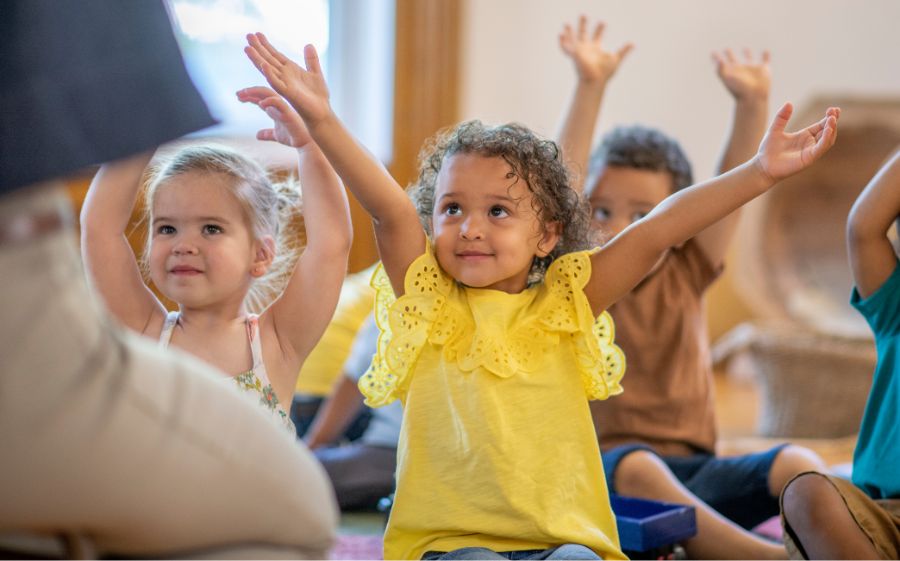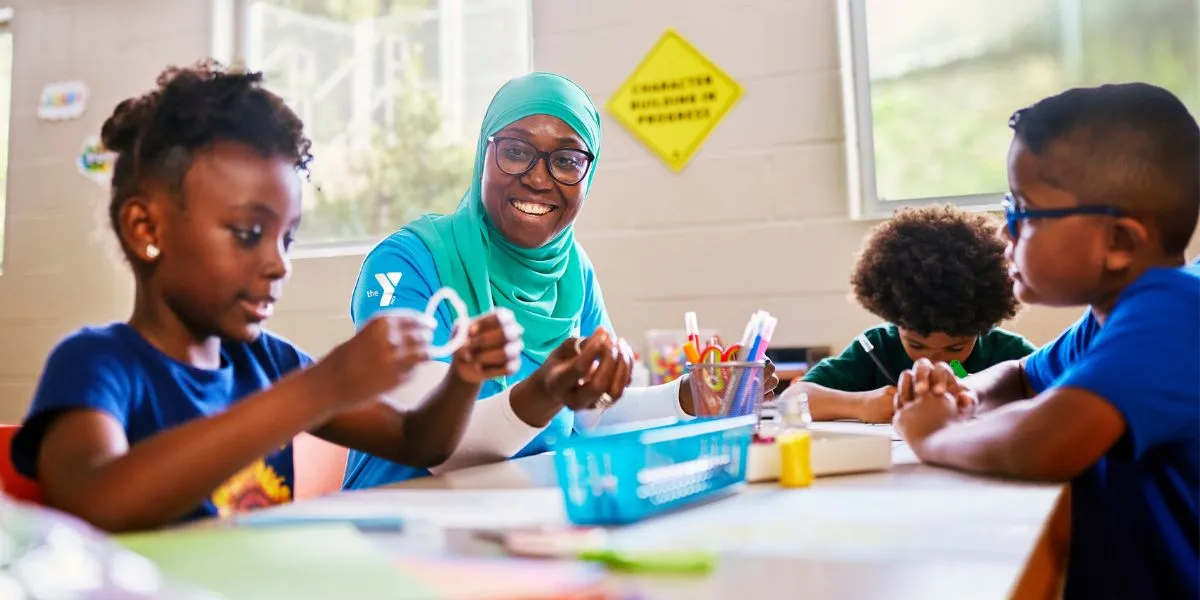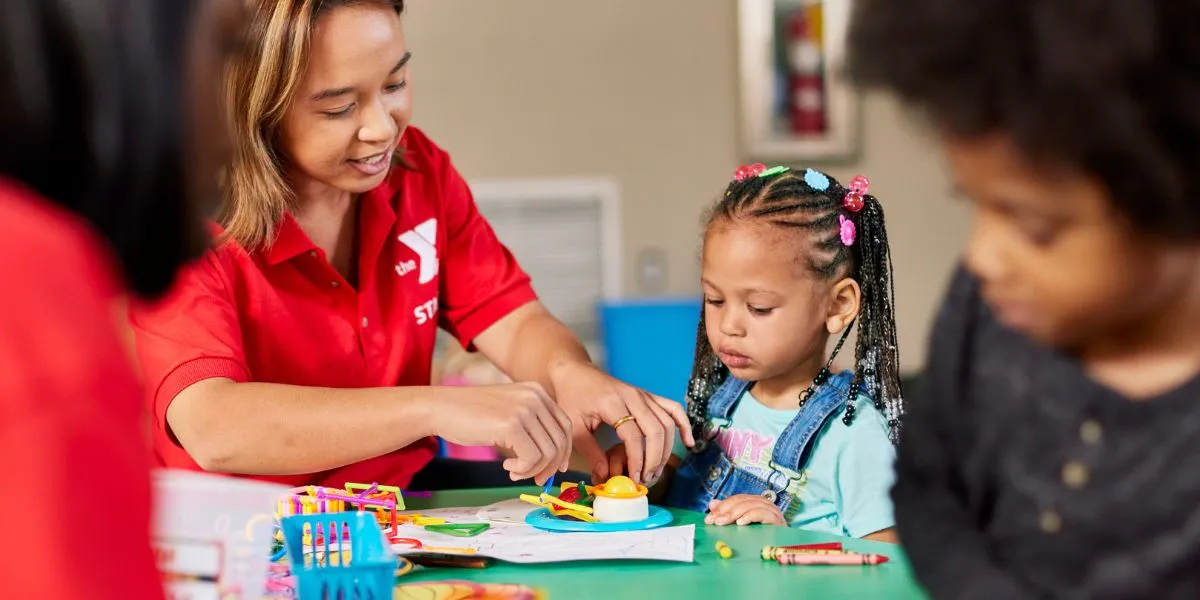
Published: 03/14/2023 - 8:00 AM
Your 3-year-old is out of diapers, talking more and playing with friends, but are they ready for preschool? This is a question many parents wonder when their child gets to this stage of life. And while you may feel emotionally unprepared to send your child to school, rest assured that they will gain many benefits from preschool, from improving socialization to broadening their knowledge.
All children grow at their own pace, but there are a few indicators to help you determine whether your child is ready to take the next step into preschool.
What Is the Right Age to Start Preschool?
Most preschoolers start between the ages of 3 and 5. However, the right time to enroll your child in preschool will vary since every child develops differently. Preschool readiness is determined by your child's development, which can be influenced by factors like social-emotional maturity, ability to handle self-care tasks and other physical and academic skills.
Not every 3-year-old is ready for preschool. Some children will do better if they wait until they are 4 years old, while others may benefit from a half-day program instead. If you live in Philadelphia, there a wide variety of preschool programs that can accommodate your child's unique needs.
Signs Your Child Is Ready for Preschool
Starting preschool is a developmental milestone that isn't influenced primarily by chronological age. Look for a combination of these developmental indicators that your child is ready for preschool:
1. They Are Potty Trained
Many preschools require students to be potty trained before enrollment. Children at preschool age should also have some self-care skills, including washing their hands, pulling up and fastening their pants, and putting on their shoes and coat. Some schools only require children 3 years and older to be potty trained before preschool. Don't worry if your child has an accident or needs help cleaning up. It's not uncommon at this stage!
2. They Can Handle Separation
There are a few emotional factors you should look for when considering whether your child is ready for preschool. The main one is being able to say goodbye to a parent or caregiver without experiencing too much anxiety. While it's common to feel nervous, kids who cry throughout the day after separating from their parents likely won't be ready for a full preschool program. Kids who enter preschool without emotional readiness may feel stressed and not get what they should out of the experience.
Many kids cry on their first day or get emotional throughout the first week. Over time, these feelings often subside, and an emotionally ready child will likely be eager to learn and make friends in preschool.
3. They Follow Directions
Preschoolers should also be able to follow simple instructions. While many preschools aren't too strict about rules, some programs will ask the children to clean up, follow snack procedures, walk in line with their classmates and finish other assorted tasks.
If you feel your child may struggle with some of these requirements, you can start teaching them easy tasks at home first. Ideas include setting the table for dinner or going with you to bring in the mail. Establishing these routines can be effective in preparing them for preschool responsibilities, so pick simple chores that can be completed every day.
4. They Communicate Clearly
Three-year-olds aren't expected to have perfect speech. In fact, most preschoolers only speak in sentences of three to five words. However, your child should know how to express themselves clearly so unfamiliar adults can understand them. It's essential that they can get their feelings and needs across, whether through speech, sign language, gestures or with the help of technology.
Additionally, understanding basic words and simple directions like "follow me" or "sit down" can help your child get the most out of preschool.
5. They Can Follow a Routine
Most preschools have a set schedule. For instance, they might transition from carpet time to playtime to snack time. As a result, it's critical that your child can adapt and smoothly transition from one activity to the next. You can work on these skills if your child can't transition quickly, such as when they are too engrossed in a favorite activity.
You might tell your child they can have a snack after they finish a game or establish a simple routine at home to prepare them for transitions. You can also use a wall chart to remind your child of the order of activities for certain days so they know when to move on to the next activity.
6. They Interact Well With Other Kids
It's also helpful to consider how well your child interacts with other kids. If they've been around other kids, such as in playgroups or at the park, you probably understand how they respond to others their age. Observe how they play with siblings, cousins or neighbors to determine their preschool readiness and whether they interact appropriately.
That said, many preschools promote developing social skills by encouraging group activities like playtime, crafts and storytime. So, if your child hasn't had much time to interact with children their age, rest assured that they will have the opportunity in preschool.
7. They Demonstrate Some Independence
Kids aged 3-4 aren't expected to do everything alone, but some independence is helpful. Preschool programs typically involve projects and crafts that require independence and concentration. Your child will likely do projects with other kids without constant redirection from adults and will be expected to feed themselves and navigate the classroom without the teacher's help after they've had time to know the space. If your child enjoys independent activities at home, like drawing or completing puzzles, they're likely a good candidate for preschool.
How to Prepare Your Child for Preschool
In most cases, you won't need to do anything to prepare your child for preschool since these skills are ones that most kids develop naturally around 3-5 years old. However, you might prepare them by reviewing basic preschool skills like interacting with kids their age, following directions, using the bathroom and washing their hands a few months before enrolling them in a preschool program, especially if you notice they are behind on any of these skills.
There are also ways to prevent separation anxiety to ensure your child gets the most benefits from preschool. For instance, you might leave your child with a friend or family member for a short time while you run errands or with a neighbor as you take a short walk around the block. Over time, your child will feel more comfortable separating from you. When they know that you will return, they'll feel less anxiety.
And suppose you're worried about their social readiness. In that case, you might arrange playdates, attend community events or take them to an open gym at your community center so they can practice socializing with peers.
Looking for Preschools in the Greater Philadelphia Area? Enroll Your Child at the YMCA
All children deserve a safe, engaging educational environment where they can grow intellectually, emotionally, and socially. When you're looking for preschools in Philadelphia and the surrounding area, look no further than the YMCA. Our early learning programs can help prepare your child for success in kindergarten and beyond by supporting their creativity, helping them improve social behavior and increasing self-care skills.
We also offer one of the top part-day preschools in the Greater Philadelphia Area to help your child transition more easily into kindergarten. Here, they can learn writing and reading skills, math concepts, and explore the world of colors, songs, movements and friendship!
Both programs can set your child up for success by promoting creativity, confidence and lifelong critical thinking skills. To learn more about our programs, sign up for a tour today.

